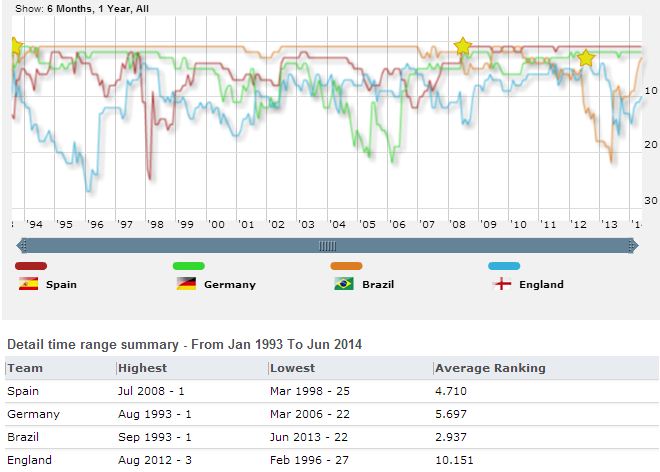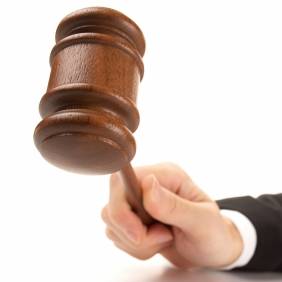 Every time I hear another pundit explaining their theory behind England’s failure at the world cup I get all hot and bothered. My wife could literally not care less about football or my feelings on the subject, so I thought I would share my them with you 😉
Every time I hear another pundit explaining their theory behind England’s failure at the world cup I get all hot and bothered. My wife could literally not care less about football or my feelings on the subject, so I thought I would share my them with you 😉
You see, it seems that football does not benefit, as cricket and baseball do, from that important type of pundit, the statistician.
For if they did, they would realise that failing to make it into the last 16 this year is not a failure at all.
Why? Because we have to remember that there are, at time of writing, 209 national men’s teams registered with FIFA – and that FIFA estimates that 250 million people play the beautiful game. So just getting to the finals is a real achievement.
On the other hand you can argue that England should be in the top flight – it has a decent population, it has money to spend and many aspirational heroes.
Well.. it does do well, currently, England is ranked 10th in the world, and has often been higher. But does that mean it should always reach the last 16 of the world cup? No.
Take a step back. Even with so many teams, that world ranking should mean a team like England should make it ‘usually’, but certainly not always. Indeed, it has made the last 16 every time since 1958, indeed it’s a surprise to me that they have run so long without missing out.
It has always been known that football has a ‘luck factor’ indeed this is one of its best features – upsets happen – and that is why the league has a round-robin design, and also why some tournaments are done by knockout – the league aims to find the best teams, tournaments aim to find the best moments.
England did not play badly this world cup. The goals conceded were really pretty darn good, and England had more shots on goal than their opponents. But for the rub of the green, they could have been through and lauded by all. So how can the pundits have such strong opinions?
Easy. Because it’s their job to sound like they know.
Addendum
So how have teams like Brazil, Spain, Germany, Italy, France and the Netherlands managed to spend so much time in the top 3? If it was all luck, they would not. Well, this means that there are actually recipes for better performance, elusive but real…
However, just as the government would hate for you realise they do not control the economy, football pundits and administrators alike would not like you to know (or indeed to know themselves) that this recipe is largely outside of their control – the biggest factors being: population size, other games to play, weather, virtuous circles (inspiration, promise of fame, etc) and last but certainly not least, luck.


